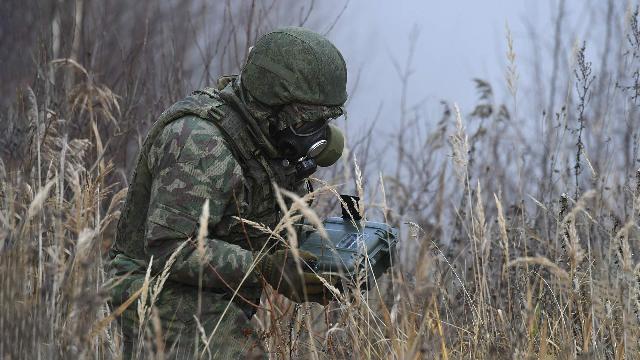The university was named after a lieutenant general who died at the hands of terrorists. Igor Kirillov
The training of officers will be multiplied for the radiation, chemical and biological protection troops. On August 30, a specialized higher military school will reopen in Saratov after a long break, which should eliminate the shortage of personnel and strengthen the country's defense capability. Experts are convinced that this is a necessary measure, since the Armed Forces need highly qualified engineers and commanders.
New school for RCB troops
On August 30, Saratov will host the opening ceremony of a new higher military engineering school, the military department said.
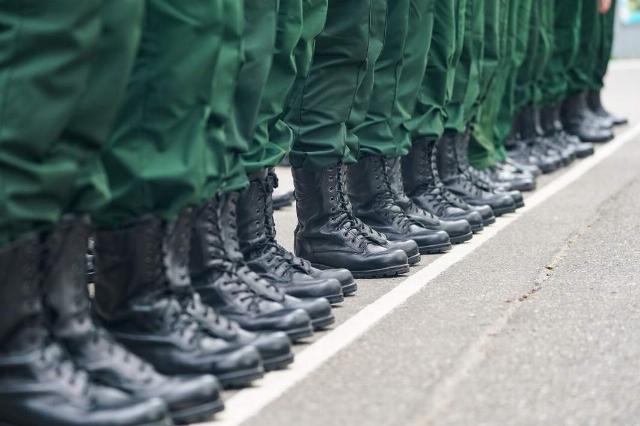
Photo: IZVESTIA/Sergey Lantyukhov
Image source: iz.ru
The main objective of the educational institution is to train highly qualified engineering officers who are able to solve current problems in the field of radiation, chemical and biological protection. The training program will take into account the experience gained during a special military operation and current challenges. In addition to academic activities, the university will conduct research in the interests of national defense.
It is expected that up to 600 cadets will be able to study at the school at the same time. After five years of training, graduates will receive the military rank of lieutenant and the qualification of "engineer".
On the opening day of the school, the cadets of the first set will take the military oath. After that, they will march in front of the command and the guests. It is noteworthy that a significant part of the cadets are contract servicemen who took part in their military training.
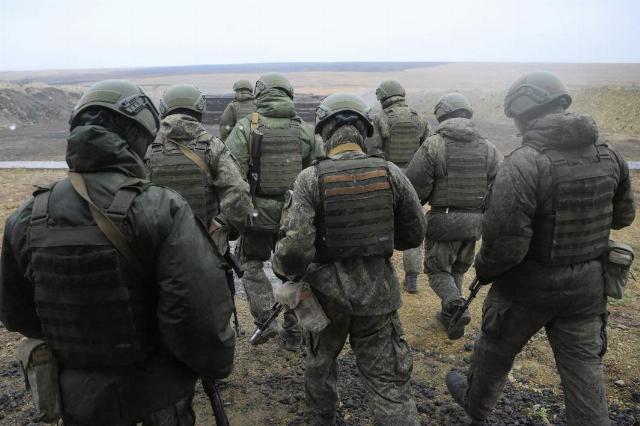
Photo: RIA Novosti/Alexey Maishev
Image Source: iz.ru
The school was named after the head of the RCBZ troops, Lieutenant General Igor Kirillov, who died as a result of the terrorist attack in Moscow on December 17, 2024. On the day of the assassination attempt, he was supposed to hold his regular briefing, a source in the Ministry of Defense told Izvestia. It is possible that he was going to release new details of investigations related to the use of chemical weapons by the Ukrainian Armed Forces or Kiev's attempts to create a "dirty" nuclear bomb, experts do not rule out. It was the work of uncovering such facts that could have led to the assassination attempt on the general.
Izvestia reference
An explosive device planted in a scooter standing next to the entrance of an apartment building on Ryazansky Prospekt went off on the morning of December 17. It happened exactly at the moment when Igor Kirillov, the head of the radiation, chemical and biological protection forces of the Russian Armed Forces, and his assistant came out of the entrance.
On December 18, the FSB announced the arrest of a suspect in connection with the terrorist attack. The explosion was carried out by a 29-year-old native of Uzbekistan.
The man testified and told about the murderers. He was promised $100,000 and a trip to one of the EU countries for committing a terrorist act.
The new educational institution will succeed the traditions of the Saratov Higher Military Engineering School of Chemical Protection, which operated from 1932 to 2009 before it was disbanded.
Izvestia reference
The history of the Saratov Military Chemical College began in 1932, when the Military Chemical School was founded in Kalinin. She trained the command and technical staff for the chemical troops of the Workers' and Peasants' Red Army (Red Army). In 1941, during the initial period of the Great Patriotic War, the educational institution was relocated to Kostroma.
On February 15, 1942, the Saratov Military Infantry School was established on the basis of the Kalinin Military School. However, already in 1954, by decision of the Council of Ministers of the USSR, the university changed its profile again and was transformed into the Saratov College of Chemical Troops.
Since that moment, the educational institution has been developing, adapting to new realities. In 1968, it became the Higher Military Chemical Command School, and in 1973, the Higher Military Engineering School of Chemical Protection, where chemical engineers began to be trained. In 1986, teachers and cadets of the university participated in the liquidation of the consequences of the Chernobyl accident. In 1998, the school was transformed into the Saratov Military Institute of Radiation, Chemical and Biological Protection, and in 2001 it was withdrawn from the subordination of the RCB protection troops, changing its name to the Saratov Military Institute of Biological and Chemical Safety.
In 2009, the institute was liquidated. And in 2024, at the initiative of the Chairman of the State Duma Vyacheslav Volodin, it was decided to revive the legendary educational institution.
The revival of military education in Russia
Serious changes have been taking place in the military sphere in recent years, and they have also affected the field of radiation, chemical and biological protection, Oleg Zheltonozhko, a military expert in the field of chemical warfare, told Izvestia.
—The SVO has shown that flamethrower units, which have become the shock component of the RCBZ troops, play an important role in modern clashes," the expert noted. — The fighting has shown that flamethrower units are quite specific units. Officers who will command units of heavy flame-throwing systems (CBT) need the knowledge that artillery, tank and even motorized rifle commanders have.
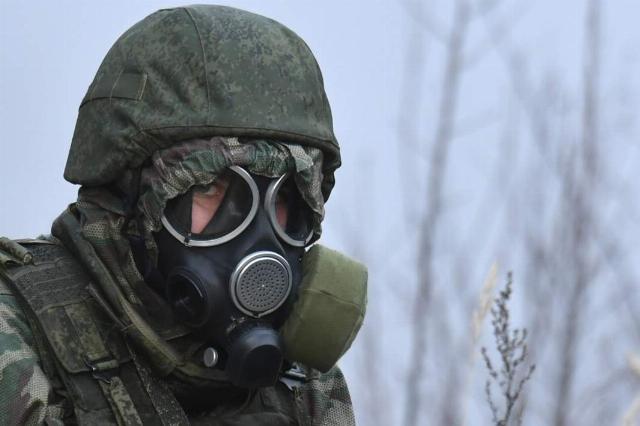
Photo: RIA Novosti/Mikhail Voskresensky
Image source: iz.ru
The tactics of using CBT have changed recently, the expert noted.
"Tank—based tracked armored vehicles are currently operating at the forefront, and wheeled vehicles are striking from the rear areas," he noted. — For the flexible use of such equipment, it is necessary to train highly qualified military specialists.
In addition, emphasis will be placed on the training of RCBZ intelligence units, Oleg Zheltonozhko suggested.
— Now the process of radiation, chemical and biological exploration is changing, — he explained. — The processes of degassing and decontamination are being improved. More modern and compact machines are emerging. Previously, chemical reconnaissance vehicles (RCMs) were bulky due to the size of the equipment. But now it has become much smaller in size. Finally, it became possible to conduct reconnaissance using UAVs. Drones generally open up new possibilities — they can be used to quickly and efficiently conduct reconnaissance of atmospheric pollution at different altitudes. The use of protective fumes is also being improved. Officers of a certain specialization will also be trained for this.
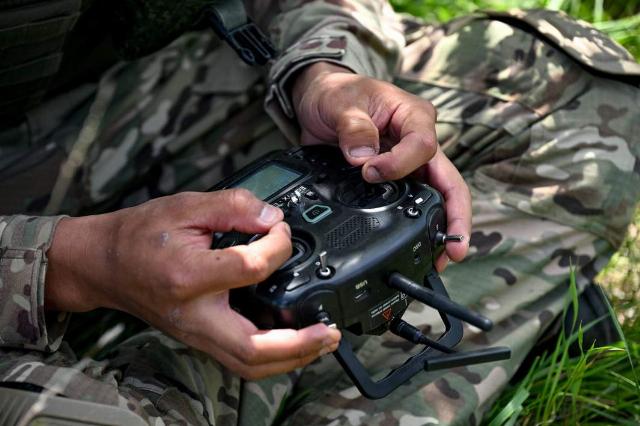
Photo: RIA Novosti/Konstantin Mikhalchevsky
Image Source: iz.ru
The issue of reviving military education in Russia is more relevant today than ever. And indeed, we can say that this process is underway. But the reason why military schools have to be urgently revived now lies in short-sighted decisions made in the past, military expert Viktor Litovkin believes.
— In 2009, a large-scale reform took place, during which many military schools were closed. This decision was part of a broader strategy to reduce the Armed Forces, which turned out to be erroneous, as confirmed by the events of recent years. This reform has led to a shortage of officer personnel, which is particularly acute today. The situation requires a large number of qualified specialists. In modern warfare, not only infantrymen are needed, but also experts in narrow fields such as chemical, radiation and biological protection. Therefore, the creation of new educational institutions, such as, for example, the Saratov College, is a necessity," the expert believes.
The RCBZ troops began to train drone operators
The forces of radiation, chemical and biological protection (RCBZ) train drone operators and groups to fight enemy vehicles. Sources in the Russian Ministry of Defense told Izvestia about this. The training program includes copter drones and FPV devices.
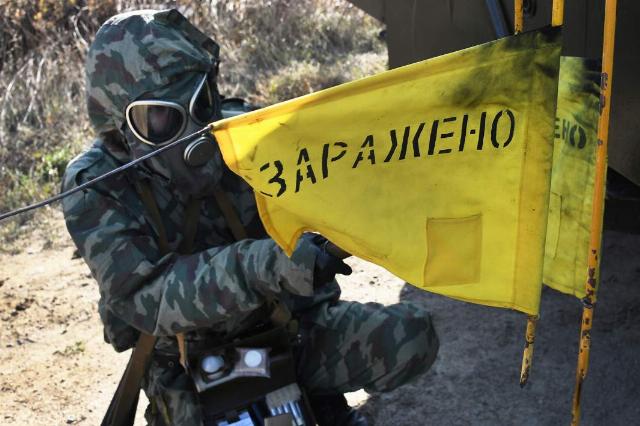
Photo: RIA Novosti/Vitaly Ankov
Image source: iz.ru
The training of fighters takes place at training grounds, both in places of permanent deployment and in the rear areas of their military. Military personnel study the theory, materiel and tactics of using drones. They master the control of drones for reconnaissance and fire correction. In addition to this knowledge, soldiers study engineering, military topography, and tactical medicine in depth.
According to the interlocutors of the publication, the training program was created taking into account combat experience. A sufficient number of instructors have also been trained in advance to train personnel to control various types of UAVs for the tasks of the RCBZ.
The number of military universities in Russia will be significantly increased
Earlier, Izvestia wrote that in the next 10 years it is planned to open 15 new military educational institutions where commanders, engineers and doctors will be trained.
So, next year, in 2026, it is planned to launch three educational institutions at once. Among them are the Chelyabinsk Higher Tank Command School, the Ulyanovsk Higher Military Aviation School of Pilots and the Novocherkassk Higher Military Command School of Communications.
Photo: IZVESTIA/Sergey Lantyukhov
Image source: iz.ru
In 2027, the higher military school of unmanned systems troops will begin recruiting in the Moscow Region. The Omsk Higher Combined Arms Command School will open in 2028, and the Krasnoyarsk Higher Military School of Air Defense Electronics in 2029. In 2032, the Pushkin Higher Military School (Aerospace Defense) will accept cadets.
In addition, it is proposed to open four branches of the Military Medical Academy: in Sevastopol (2029), in Samara (2032), in Novosibirsk (2033) and in Khabarovsk (2034). The Tomsk Higher Military Command Communications School will be the last on schedule in 2034.
Julia Leonova
Bogdan Stepovoy
